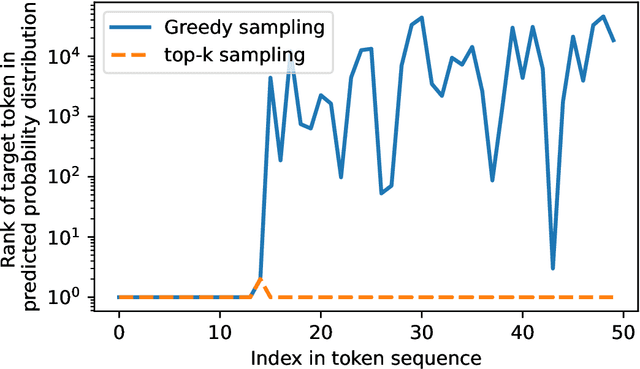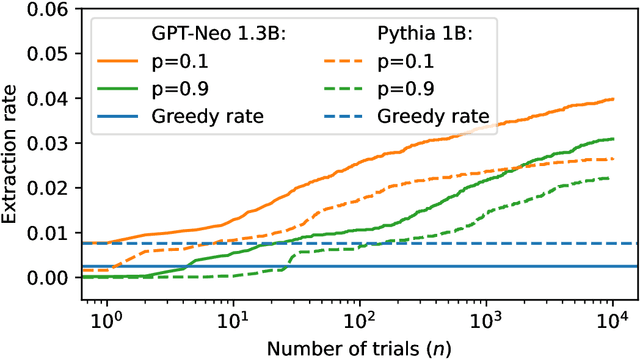Measuring memorization through probabilistic discoverable extraction
Paper and Code
Oct 25, 2024



Large language models (LLMs) are susceptible to memorizing training data, raising concerns due to the potential extraction of sensitive information. Current methods to measure memorization rates of LLMs, primarily discoverable extraction (Carlini et al., 2022), rely on single-sequence greedy sampling, potentially underestimating the true extent of memorization. This paper introduces a probabilistic relaxation of discoverable extraction that quantifies the probability of extracting a target sequence within a set of generated samples, considering various sampling schemes and multiple attempts. This approach addresses the limitations of reporting memorization rates through discoverable extraction by accounting for the probabilistic nature of LLMs and user interaction patterns. Our experiments demonstrate that this probabilistic measure can reveal cases of higher memorization rates compared to rates found through discoverable extraction. We further investigate the impact of different sampling schemes on extractability, providing a more comprehensive and realistic assessment of LLM memorization and its associated risks. Our contributions include a new probabilistic memorization definition, empirical evidence of its effectiveness, and a thorough evaluation across different models, sizes, sampling schemes, and training data repetitions.
 Add to Chrome
Add to Chrome Add to Firefox
Add to Firefox Add to Edge
Add to Edge